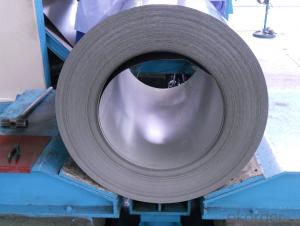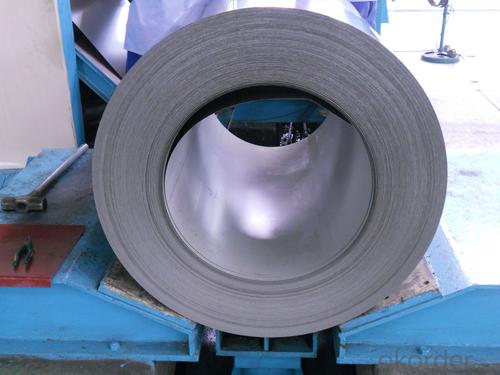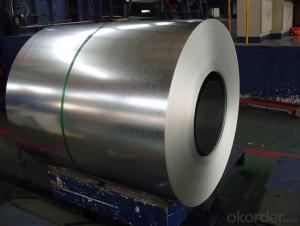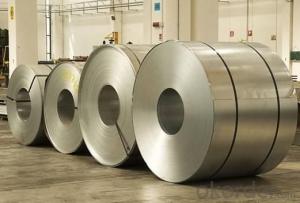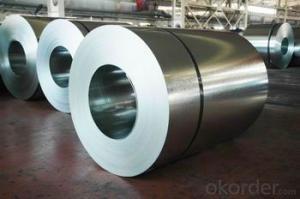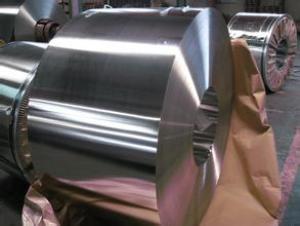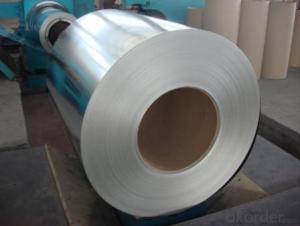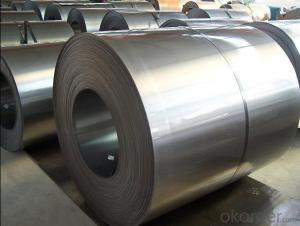Supply Hot-Dip Galvanized Steel Sheet/Coil
- Loading Port:
- Tianjin
- Payment Terms:
- TT OR LC
- Min Order Qty:
- 50 m.t.
- Supply Capability:
- 10000 m.t./month
OKorder Service Pledge
OKorder Financial Service
You Might Also Like
Hot-dip Zinc Coating Steel Building Roof Walls
1.Structure of Hot-Dip Galvanized Steel Sheet Description:
Hot-dip galvanized steel coils are available with a pure zinc coating through the hot-dip galvanizing process. It offers the economy, strength and formability of steel combined with the corrosion resistance of zinc. The hot-dip process is the process by which steel gets coated in layers of zinc to protect against rust. It is especially useful for countless outdoor and industrial applications. Production of cold formed corrugated sheets and profiles for roofing, cladding, decking, tiles, sandwich walls, rainwater protective systems, air conditioning duct as well as electrical appliances and engineering.
2.Main Features of the Hot-Dip Galvanized Steel Sheet:
• Excellent process capability
• Smooth and flat surface
• Workability, durability
• Excellent anticorrosive property
• High strength
• Good formability
• Good visual effect
3.Hot-Dip Galvanized Steel Sheet Images:
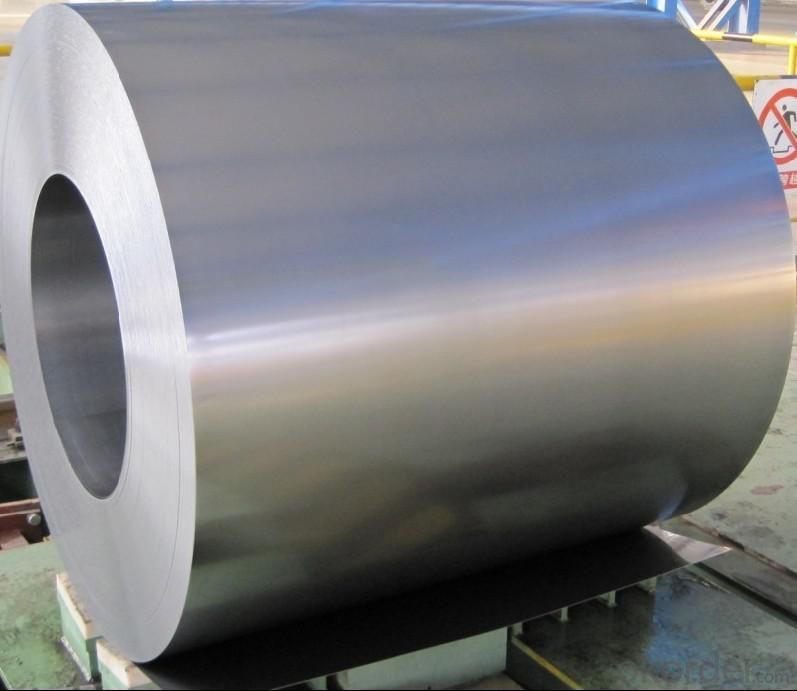
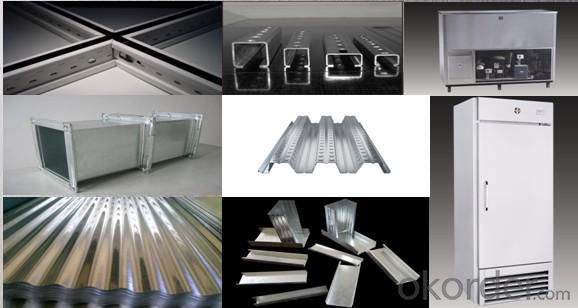
4.Hot-Dip Galvanized Steel Sheet Specification:
Standard: ASTM, JIS,EN
Grade: CS, DX51D+Z,SGCC, SS 230~550,S220GD+Z~S550GD+Z, SGC340~SGC570
Thickness: 0.1mm~5mm
Width: max 2000mm
Coil weight:3-12 MT
Coil ID:508/610mm
Surface structure: zero spangle, regular spangle or minimum spangle
Surface treatment: Chromate treatment, Oiled/dry, skinpassed/non-skinpassed
Packing: Standard seaworthy export package
Technology test results:

5.FAQ of Hot-Dip Galvanized Steel Sheet:
We have organized several common questions for our clients,may help you sincerely:
1.How about your company?
A world class manufacturer & supplier of castings forging in carbon steel and alloy steel,is one of the large-scale professional investment casting production bases in China,consisting of both casting foundry forging and machining factory. Annually more than 8000 tons Precision casting and forging parts are exported to markets in Europe,America and Japan. OEM casting and forging service available according to customer’s requirements.
2.How to guarantee the quality of the products?
We have established the international advanced quality management system,every link from raw material to final product we have strict quality test;We resolutely put an end to unqualified products flowing into the market. At the same time, we will provide necessary follow-up service assurance.
3. How long can we receive the product after purchase?
Usually within thirty working days after receiving buyer’s advance payment or LC. We will arrange the factory manufacturing as soon as possible. The cargo readiness usually takes 15-30 days, but the shipment will depend on the vessel situation.
- Q: 2 refridgerator of similar model and same brand..one is stainless steel...the other is clear steel (cheaper)..so wat's the difference between the two?
- In okorder /... The appliances that are not made of stainless steel are made of a mild steel which is then finished with a durable enameled finish, in colors even. Stainless steel appliances look very nice in the showroom, but it is no fun trying to keep them fingerprint and handprint free. If you have ever owned a toaster that was made from stainless steel then you know how much fun it would be to have to keep a whole refrigerator fingerprint free, The oils transferred from the skin leave very distinct smears on stainless surfaces.
- Q: What are the different types of steel coil recoiling methods?
- There are several different types of steel coil recoiling methods, including slitting, cut-to-length, and multi-blanking.
- Q: What is the average width tolerance for steel coils?
- The average width tolerance for steel coils can vary depending on the specific industry and application, but typically it ranges from ±0.005 to ±0.25 inches.
- Q: Can steel coils be used in the production of electrical components?
- Indeed, the utilization of steel coils is possible in the manufacturing of electrical components. It is common practice to employ steel coils as magnetic cores in transformers and inductors. The magnetic properties inherent in steel render it an optimal substance for bolstering the efficacy and effectiveness of electrical components. Wrapping the coils around the steel core serves to concentrate and direct the magnetic field, guaranteeing a seamless and efficient operation. Additionally, steel coils find application in the creation of solenoids, motors, generators, and other electrical contrivances wherein magnetic fields are indispensable for proper functioning. On the whole, steel coils assume a pivotal role in the production of diverse electrical components, thereby contributing to their trustworthy and high-performance operation.
- Q: How are steel coils used in the manufacturing of signage?
- Steel coils are used in the manufacturing of signage as a key material for creating the durable and rigid frames that hold and support the sign panels. These coils are typically cut, shaped, and welded into the desired frame structure, providing strength and stability to the signage.
- Q: What are the safety standards for steel coil manufacturing?
- To ensure the well-being and protection of workers, as well as the quality and reliability of the products produced, the safety standards for steel coil manufacturing have been designed. These standards encompass various aspects of the manufacturing process and include both general safety guidelines and industry-specific requirements. One of the primary safety standards for steel coil manufacturing involves implementing proper safeguards for machinery and equipment. This entails ensuring that all machinery and equipment used in the manufacturing process are adequately maintained, regularly inspected, and equipped with safety features such as emergency stop buttons and safety guards. Workers must also receive sufficient training on the safe operation of these machines and be aware of potential hazards. Another crucial safety standard is the utilization of personal protective equipment (PPE). Workers engaged in steel coil manufacturing must be provided with appropriate PPE, including safety goggles, gloves, ear protection, and protective clothing, in order to safeguard them against potential hazards such as flying sparks, noise, and chemical exposure. Additionally, safety standards for steel coil manufacturing emphasize the proper handling and storage of materials. This includes guidelines on how to safely lift and transport heavy steel coils, as well as regulations for stacking and storing them to prevent accidents and injuries. Fire safety is also of utmost importance in the safety standards for steel coil manufacturing. Measures should be implemented to prevent and control fires, such as regular inspections of electrical systems, proper storage and handling of flammable materials, and the availability of fire extinguishers and emergency evacuation plans. Furthermore, safety standards necessitate regular safety training and awareness programs for all employees involved in steel coil manufacturing. This ensures that workers are well-informed about potential hazards, safety procedures, and emergency protocols. Regular safety audits and inspections are also conducted to evaluate compliance with these standards and identify areas for improvement. Overall, the safety standards for steel coil manufacturing strive to establish a safe working environment, minimize the risk of accidents and injuries, and ensure the production of high-quality steel coils. Compliance with these standards is crucial for preserving the well-being of workers, protecting the environment, and upholding the reputation of the manufacturing industry.
- Q: which is the most tough and durable steel type ??
- Speaking of Building Construction, we use grade 450 and 450B not because of toughness, its because it best serves its purpose, reinforcing concrete structure should provide the enough ductility of structure to resist flexure/bending when loads are imposed on it.
- Q: How are steel coils used in the manufacturing of intake manifolds?
- Steel coils are used in the manufacturing of intake manifolds as they are shaped and formed into specific designs to create the inner structure of the manifold. The coils are typically cut, bent, and welded together to create the desired shape and size of the intake manifold, which then allows for the proper flow of air and fuel mixture into the engine cylinders.
- Q: How are steel coils used in the production of agricultural fencing?
- Steel coils are used in the production of agricultural fencing by being processed and shaped into wire strands that are then woven or welded to create the fence panels. These coils provide the necessary strength, durability, and rigidity required for effective and long-lasting agricultural fencing solutions.
- Q: I would like to know the process of making steel from the mining of ore to the final product. Can anybody offer some help? Either where to look, or the process itself. I would like to have included the different options with which to make steel. Through scrap metal, or iron ore briquettes etc... Thanks.
- How is steel made? Steel is made via two basic routes - from raw materials - iron ore, limestone and coke by the blast furnace and basic oxygen furnace route or from scrap via the electric arc furnace (EAF) method. The raw material approach is known as the integrated route and about 60% of steel produced today is made by this method. The second technique is much easier and faster since it only requires scrap steel. Recycled steel is introduced into a furnace and re-melted along with some other additions to produce the end product. About 34% of steel produced in 2003 was produced via the EAF route. The first lin contains diagrams of the process (Making Steel)
Send your message to us
Supply Hot-Dip Galvanized Steel Sheet/Coil
- Loading Port:
- Tianjin
- Payment Terms:
- TT OR LC
- Min Order Qty:
- 50 m.t.
- Supply Capability:
- 10000 m.t./month
OKorder Service Pledge
OKorder Financial Service
Similar products
Hot products
Hot Searches
Related keywords
